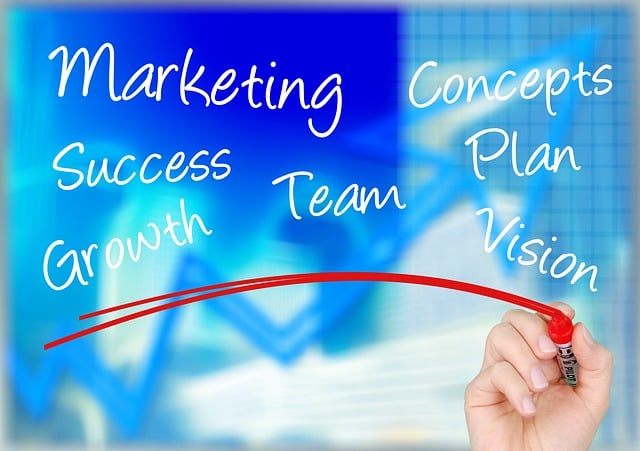AI automation is transforming talent acquisition by enhancing efficiency and accuracy through advanced data analysis and natural language processing (NLP). It parses resumes, assesses candidate skills, and offers personalized experiences. This technology frees HR from mundane tasks, allowing them to focus on strategic initiatives and fostering positive impressions. However, careful consideration is needed to address bias, maintain authenticity, and ensure ethical practices in AI-driven recruitment, particularly as these solutions become more common across industries.
“In today’s digital age, Artificial Intelligence (AI) is transforming every sector, and talent acquisition is no exception. This article explores the power of AI automation in streamlining business hiring processes, from understanding its fundamentals to examining its extensive benefits. We will also delve into the challenges and ethical considerations surrounding AI-generated content for talent blogs, ensuring a balanced perspective. With AI revolutionizing recruitment, businesses can look forward to more efficient, data-driven hiring practices.”
- Understanding AI Automation in Talent Acquisition
- Benefits of AI for Efficient Business Hiring
- Challenges and Ethical Considerations in AI-Generated Talent Blogs
Understanding AI Automation in Talent Acquisition

AI automation is transforming the way businesses approach talent acquisition, revolutionizing the recruitment process with its efficiency and precision. In essence, AI-powered tools can analyze vast amounts of data to identify patterns and predict candidate success, streamlining the initial screening stages. This technology goes beyond traditional resume parsing; it delves into understanding candidate behavior, skills, and potential through advanced analytics and natural language processing (NLP). By assessing not just what candidates say but also how they communicate, AI algorithms can uncover valuable insights that might be missed by human recruiters.
The application of AI in talent acquisition offers a more personalized experience for job seekers. Using machine learning models, these systems can adapt to individual candidate needs, providing tailored feedback and recommendations. This level of customization ensures that the recruitment process feels efficient and effective, fostering a positive impression of the company even before the interview stage. Moreover, automation releases human resources from mundane tasks, allowing them to focus on strategic initiatives, mentorship, and building stronger connections with top talent.
Benefits of AI for Efficient Business Hiring

The integration of Artificial Intelligence (AI) in business talent acquisition automation has brought about a significant transformation in the hiring process, making it more efficient and effective. AI offers numerous advantages that streamline recruitment, from initial candidate screening to final selection. With its advanced algorithms, AI can analyze vast amounts of data, including resumes, social media profiles, and previous performance metrics, to identify top talent swiftly. This ensures employers can make informed decisions, reducing the time spent on manual searches and increasing the chances of finding the perfect fit for the role.
Moreover, AI-driven systems can personalize the recruitment experience, providing tailored communications and feedback to candidates. This level of customization enhances the overall candidate journey, encouraging a positive perception of the company’s brand. In today’s competitive job market, where retaining top talent is crucial, AI automation allows businesses to stay ahead by offering efficient, precise, and personalized hiring solutions, ultimately contributing to the creation of an engaged and skilled workforce through AI-generated content that enhances the entire recruitment process.
Challenges and Ethical Considerations in AI-Generated Talent Blogs

While AI talent acquisition automation promises significant efficiency gains, there are challenges and ethical considerations that need addressing in AI-generated talent blog content. One primary concern is the potential for bias. If the training data used to teach AI writing systems reflects existing societal biases or if the algorithms themselves introduce new biases, the resulting blog posts could perpetuate or even amplify these prejudices, leading to unfair representations of candidates and organizations.
Additionally, authenticity and transparency are crucial. Readers need to be informed when they are engaging with content generated by AI. Misrepresenting human-authored work as AI-generated can erode trust and damage the reputation of both the writer and the organization publishing the content. Ensuring proper attribution and disclosure becomes vital to maintaining ethical standards in AI-driven talent acquisition practices, especially as these technologies continue to evolve and permeate various industries.
AI automation is transforming talent acquisition, offering businesses streamlined hiring processes and enhanced candidate experiences. By leveraging AI for initial screening and personalized engagement, companies can efficiently identify top talent. However, navigating ethical considerations surrounding AI-generated content, such as bias in data and algorithmic transparency, is crucial for responsible implementation. As the field evolves, striking a balance between innovation and integrity will ensure that AI supports rather than dominates the talent acquisition landscape, ultimately fostering a more inclusive and effective hiring strategy.
